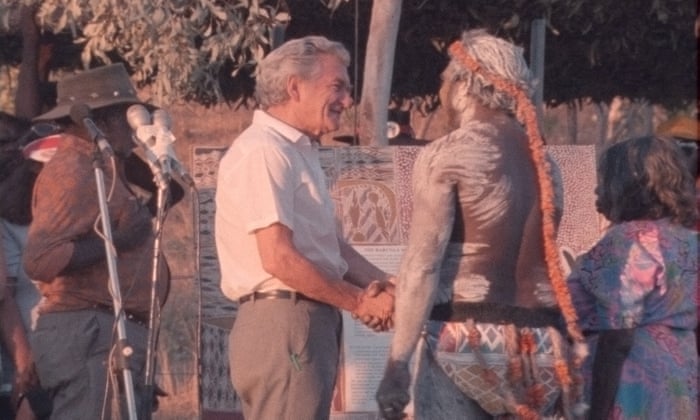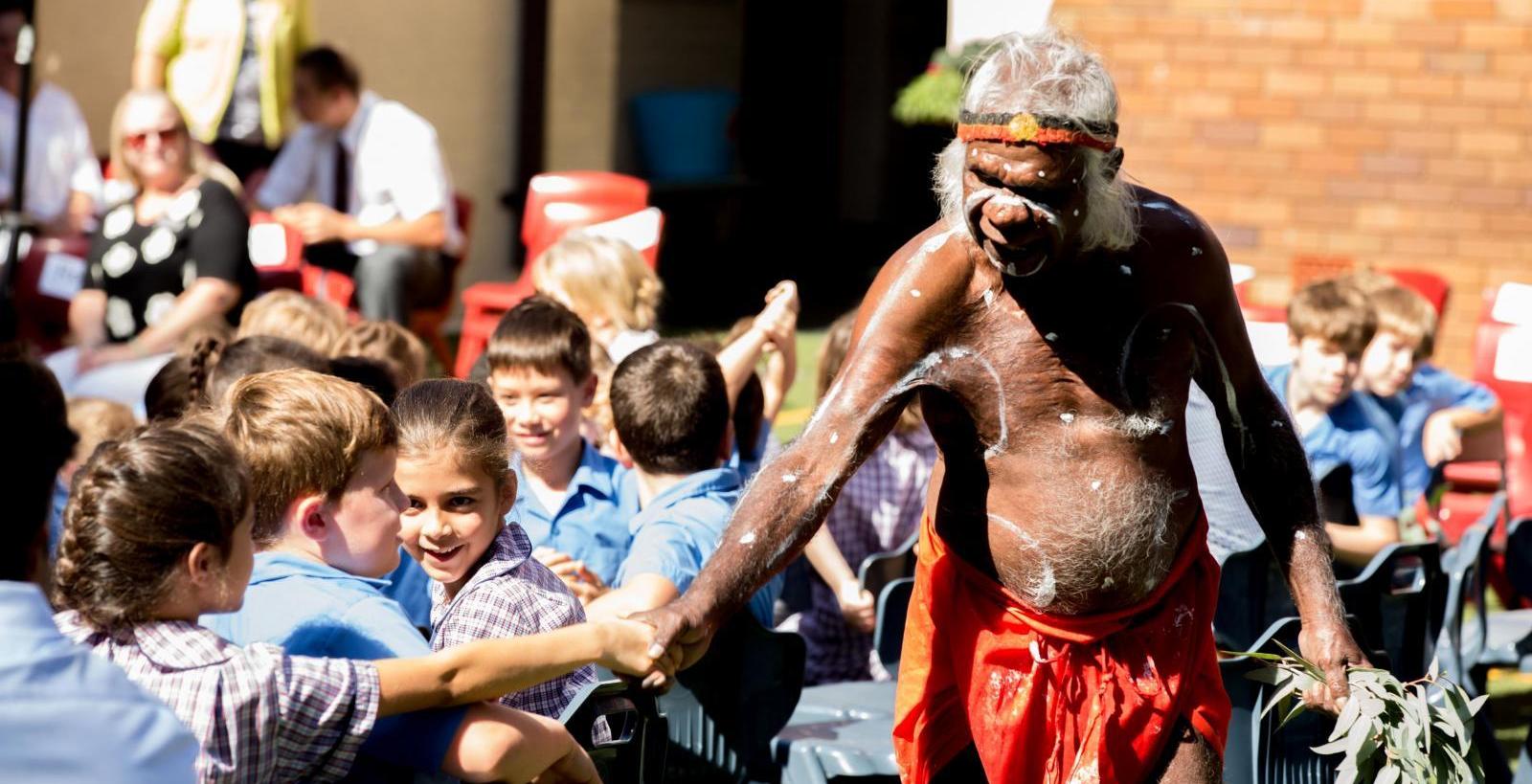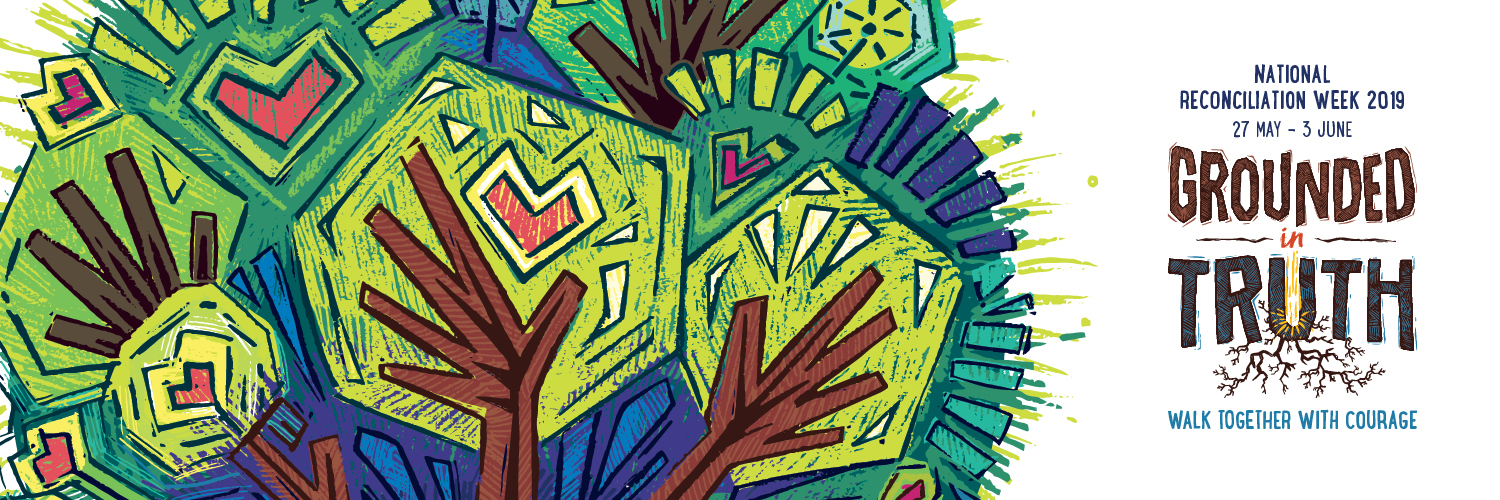National Reconciliation Week (NRW) occurs every year from the 27th of May to the 3rd of June. It is a time for all Australians to learn about Indigenous people and culture as well as our shared histories and achievements.
Opinion piece by Biz Rigney and Georgia Capocchi-Hunter
Reconciliation is defined as 'the restoration of friendly relations or the action of making one view or belief compatible with another.' However we believe that this is not an accurate way to describe what we as Aboriginal people are trying to achieve – it does not consider the unequal standing Aboriginal and non-Aboriginal people in Australia, between the two ‘beliefs’ that are being reconciled. Reconciliation is not advancing in the way it was intended and this is partly because no real change has been made to educate the broader public about Aboriginal history and culture.
A history of 'Reconciliation'
'Reconciliation' has an interesting history in Australia which actually began with Treaty. In 1988 then Prime Minister Bob Hawke was presented with the Barunga Statement, a petition which called for recognition of a wide range of Indigenous rights including a negotiated Treaty. Bob Hawke declared there would be a treaty by 1990 however, this idea was later scrapped in favour of 'Reconciliation.'
Many Aboriginal people therefore see 'Reconciliation' as a compromise position that governments have pursued in order to avoid having to make real change in the form of a treaty.
Aboriginal people have advocated for 'reconciliation' however, it was always seen as needing to be progressed alongside other key reforms and change. For example, the 1991 Royal Commission into Aboriginal Deaths in Custody included in their 339th recommendation that...
All political leaders and their parties recognise that reconciliation between the Aboriginal and non-Aboriginal communities in Australia must be achieved if community division, discord and injustice to Aboriginal people are to be avoided.
In 1991 the Council for Aboriginal Reconciliation was established by Commonwealth as a statutory body and in 1996, the Council for Aboriginal Reconciliation launched Australia’s first NRW. It was marked either side by Sorry Day (26th May), the anniversary of the 1967 Referendum (27th May) and Mabo Day (3rd June).
Sorry Day was also a recommendation this time however from the Bringing Them Home Report in which the Aboriginal and Torres Strait Islander Commission, in consultation with the Council for Aboriginal Reconciliation, were to arrange for a
‘...National 'Sorry Day' to be celebrated each year to commemorate the history of forcible removals and its effects’.
In 2000, Reconciliation Australia was established to continue to provide national leadership on reconciliation.
Each year Reconciliation Australia decides on a theme for reconciliation week. The theme for 2019 is ‘Grounded in truth. Walk together with Courage.’ This theme focuses on the relationship between the broader Australian community and Aboriginal and Torres Strait Islander peoples and how it must be grounded in truth so that we can move forward as a nation.
Despite having a complicated history, Reconciliation Week is an important time for many Aboriginal people and it provides an opportunity to speak our truth and keep fighting for rights and equality. For some, this includes critiquing the concept of 'reconciliation.'
Bob Hawke at the Barunga Festival, 12 June 1988


Image Source: A still from the film Make it Right! 1988. Photograph: Ronin Films
Why total reconciliation is not yet possible
Despite 18 years of celebrating and pushing for Reconciliation little has changed for First Nations people in Australia. Out-of-home care and deaths in custody statistics for our Community are still a major issue and we continue to be over-represented in the prison system.
We continue to suffer from shorter life expectancy, higher rates of infant mortality, poorer health, lower levels of education and employment and over-representation in the prison system.
The education system is failing to give an unbiased and colonial version of Australian history. This is contributing to the negative views and stereotypes surrounding Aboriginal people and allows the discrimination and oppression of our people to continue unchallenged.
It is not seen as government (or wider Australia’s) responsibility to be better, but up to Aboriginal people to educate, to drive change and to push for equal treatment. This ignores the trauma that has been passed down to us, that we live with daily and forces us to re-traumatise ourselves so that the oppressors can be educated on our plight.


Image Source: Reconciliation Australia - What is Reconciliation?
How you can support real change?
It isn’t all bad however, and if everyone puts in their time and effort into unlearning and re-educating themselves on our shared history we can begin to move forward as a nation.
There are a few ways you can help support true reconciliation and promote the truth of our shared history, such as:
- Organise events at your local school, work or council that promotes and celebrates Aboriginal and Torres Strait Islander culture.
- Ensure your school teaches the correct history of Australia and includes the frontier wars, invasion and colonisation, forced removals of children and the 1967 referendum.
- If you're not Aboriginal, take the time to educate yourself on important events in our history and learning about our culture without expecting the information to be freely given to you from an Aboriginal person.
- Challenge racist and derogatory stereotypes you or your family and friends may have.
Sources used in writing this article
- National Reconciliation Week, Reconciliation Australia
- The State of Reconciliation in Australia: Our History, Our Story, Our Future, Reconciliation Australia
- Bringing them Home Report Recommendations, Australian Human Rights Commission
- Final Report, Royal Commission into Aboriginal Deaths in Custody
- About Us, Reconciliation Australia
- Why doesn't Australia have an indigenous treaty?, British Broadcasting Corporation.

